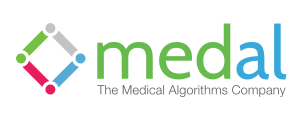What did you do the last time you were stopped at a railroad crossing?
Did you even look at the train cars going by? Did you immediately look at your cell phone or do something else, hoping that the train goes by quickly. Maybe you tried to count the number of cars. Did you read any of the rail car information as the cars whizzed by? Do you even know information is on the sides of the rail cars?
After you have had HAZMAT training then you realize there’s a whole lot more going on than you were aware of. With a trained eye, you can get a pretty good idea if the rail cars includes hazardous materials. You also have a greater situational awareness: paying attention to track conditions, wind speed and scoping out nearby schools and other sensitive structures. All of this information is important if the train suddenly derails. But derailments are uncommon and there is so much else to worry about so we usually (but not always) get by without gathering complete information.
We are constantly exposed to more and more information and have to process it with ever-changing technology. In many cases we are unprepared and unable to handle the information tsunami coming at us or even if we are well-trained and we understand the information, we just don’t have the time. The human mind is wonderful but it has limits. Plus we have egos and hate to admit that we might not know everything we need to know or understand all the complex information we’re bombarded with on a daily basis. So we vainly try to cope and pretend that we know what we are doing.
Each of us has different coping strategies. We may use one or more gatekeepers to our consciousness that blocks, filters or discards information. If all else fails we find ways to justifiably forget. Some of this is done by heuristics such as:
- No one has told me that it was important.
- I see no reason to think that it is important.
- No one is making me learn it.
- I have to prioritize more pressing issues.
- It is not brand new or trendy so I don’t need to know it.
These heuristics are simple but often biased. They may work for most situations most of the time. But, sometimes they fail and we may not be able to predict when. By the time we recognize that something unanticipated is happening it may be too late. Hopefully one is good at forgetting.
Healthcare Information Overload – Clinical Implications
In healthcare we are constantly exposed to all sorts of information coming from many sources. Unless we are trained, we may have no idea what it all means. We also find ourselves having to make more clinical decisions on our own. As healthcare moves towards more outpatient care, access to other colleagues may get harder. Telemedicine may help clinicians communicate, but they may not have real-time access to the patient’s complete medical record. So, as health information and data increases exponentially, a clinician’s ability to handle cascades of incoming information may decrease while demands to meet quality metrics increase.
One practical solution is a knowledge-based clinical decision-making system which can pick up the slack, acting as the clinician’s digital assistant. Some examples of potentially autonomous analytics that can run in the background include early warning scores, red flags and alarms. These can help to detect problems that clinicians might not otherwise be aware of and provide backup when distracted by other issues.
- Patient-At-Risk Early Warning Score

- Pediatric Advanced Warning System (PAWS)

- Admission Early Warning Score (EWS)
 >
> - Patient Questionnaire with Cancer Warning Signs

- When to Consider the Diagnosis of a Familial or Hereditary Cancer

- Modified Early Warning Score (MEWS) for a Hospital Inpatient

- Vital Sign Score (VSS) for Evaluating a Patient in the Emergency Department

- ALARM Symptoms Indicating the Possibility of Cancer in a Patient with Dyspepsia

- Alarm Symptoms for Patients with Gastroesophageal Reflux Disease

- Alarm Signs and Symptoms in Headache Indicating Possible Serious Intracranial or Systemic Pathology
 /li>
/li>
- Red Flag Signs for a Salivary Gland Mass

- Red Flags for Cancer in a Pediatric Patient: Lymphadenopathy

- Red Flags for an Imminent Myasthenic Crisis

Conclusion – Coping with Healthcare Information Overload
Healthcare faces many challenges. Old ways of coping may no longer work or be acceptable. To provide the best care possible we need something better that will raise our situational awareness. Analytics can help us cope with clinical information overload. Although medical calculators can’t replace a physician’s experience, they can provide solid backup in the form of additional monitoring and data analysis, which comes in handy when dealing with constant information overload.

